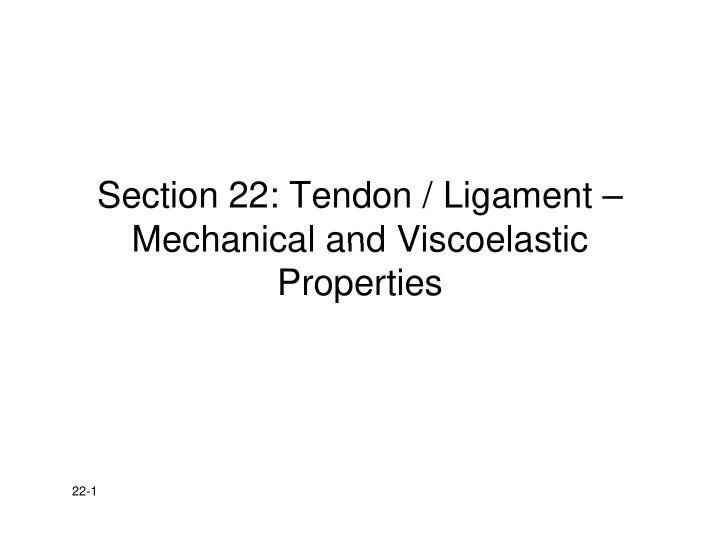

Section 22: Tendon / Ligament – Mechanical and Viscoelastic Mechanical and Viscoelastic Properties 22-1
Viscoelasticity Viscoelasticity • Time dependent behavior in soft hydrated cells & tissues p y • Linear and nonlinear viscoelastic models frequently used to phenomenologically describe mechanical behavior of ligaments and other biological tissues • Usually model based on curve fitting creep or relaxation experiment at one level of loading i t t l l f l di • Most commonly used model is quasi-linear viscoelasticity (QLV) viscoelasticity (QLV) 22-2 From: Vanderby
Viscoelasticity Viscoelasticity • Increased resistance with increased loading rate • Creep = under constant load soft tissue will continue to ft ti ill ti t gradually deform • If compressive force is applied If compressive force is applied slowly, syringe offers little resistance • Increased rate of force, I d t f f increased resistance to rate of motion of syringe y g 22-3 From: Justice
Viscoelastic Behavior 22-4 From: Vanderby
From: Garner 22-5
From: Garner 22-6
From: Garner 22-7
From: Al-Tayyar 22-8
From: Al-Tayyar 22-9
From: Al-Tayyar 22-10
From: Al-Tayyar 22-11
From: Al-Tayyar 22-12
Recommend
More recommend